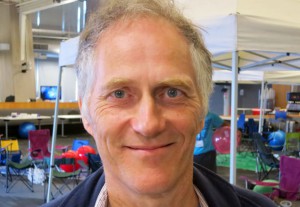
A Conversation with Tim O Reilly
Edge, [10.4.12]
If we're going to get science policy right, it's really important for us to study the economic benefit of open access and not accept the arguments of incumbents. Existing media companies claim that they need ever stronger and longer copyright protection and new, draconian laws to protect them, and meanwhile, new free ecosystems, like the Web, have actually led to enormous wealth creation and enormous new opportunities for social value. And yes, they did in fact lead in some cases to the destruction of incumbents, but that's the kind of creative destruction that we should celebrate in the economy. We have to accept that, particularly in the area of science, there's an incredible opportunity for open access to enable new business models.
TIM O'REILLY is the founder and CEO of O'Reilly Media, Inc., a leading computer book publisher. O'Reilly Media also hosts conferences on technology topics, including the O'Reilly Open Source Convention, the Strata series of conferences on big data, and Tools of Change for Publishing. O'Reilly Media's Maker Media unit publishes Make Magazine and operates Maker Faire, the world's largest gathering of DIY hardware enthusiasts and entrepreneurs. O'Reilly AlphaTech Ventures is a leading early stage venture capital firm.
“THE CLOTHESLINE PARADOX”
[TIM O'REILLY:] I've been thinking a lot lately about a piece I read in Stuart Brand's, CoEvolution Quarterly back in 1975. It's called the “Clothesline Paradox.” The author, Steve Baer, was talking about alternative energy. The thesis is simple: You put your clothes in the dryer, and the energy you use gets measured and counted. You hang your clothes on the clothesline, and it “disappears” from the economy. It struck me that there are a lot of things that we're dealing with on the Internet that are subject to the Clothesline Paradox. Value is created, but it's not measured and counted. It's captured somewhere else in the economy.
See Also:
THE OPEN SOURCE EVERYTHING MANIFESTO: Transparency, Truth & Trust (2012)
Whole Earth Review on Information (1976-1992)



